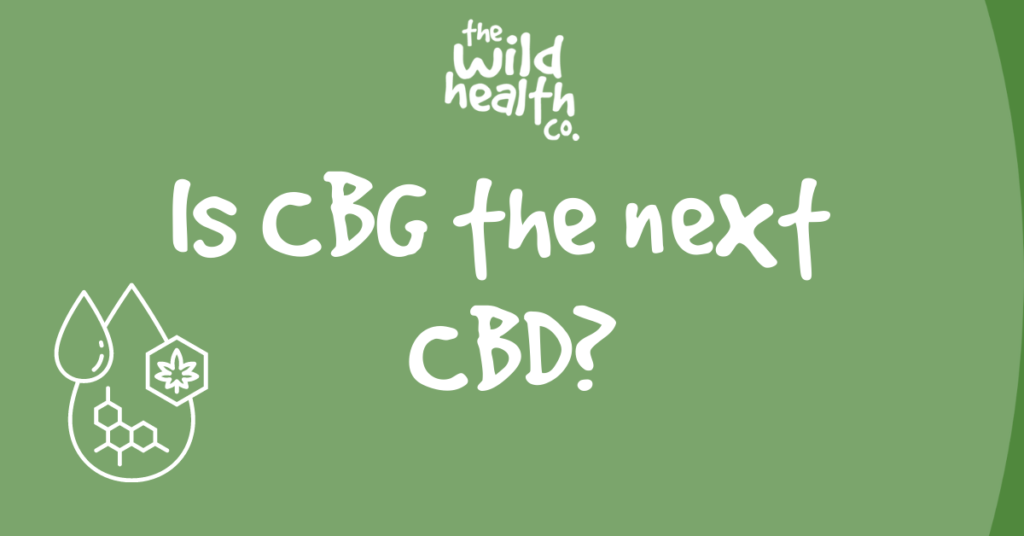The sister of CBD
It seems like Cannabidiol (CBD) came out of nowhere. You might not have noticed it much before, but then it suddenly became an ingredient in everything – candles, CBD-infused body lotions, cocktails, and the media bombardment of claims that it’s the addiction-free answer to ditching pain medication. It looks like the uses for CBD are endless. However, it seems there is a new kid on the block – another cannabinoid called Cannabigerol (CBG).
People who have started using CBG already claim that it has all the same calming and soothing effects as CBD, but that it’s more powerful – almost like CBD on holistic steroids. In fact, it seems to be selling “like hot cakes” as MaryAnn Stanger says. Maryann Stanger is a Naturopathic Doctor and the founder of the CBD seller Zatural, a business that only recently started selling CBG.
Experts have had their say too. Dr. Daniel P. Stein said, “CBG is interesting. It’s probably not just a fad, I think we’re going to learn more about it, and it will be earning its stripes.”
Of course, we recommend that you speak to your doctor before you start taking CBG or CBD, just to be on the safe side, because neither substances are medically approved. The research and popularity of cannabinoids continues to grow so it may change, but that’s not the case currently. As a result, it’s a good idea to also check up on the brand/company before buying anything with CBG involved – make sure that they are reputable and trustworthy.
At the moment, there doesn’t seem to be any clear side effects of using CBG and, just to be clear, everything that we’re talking about here is legal. In fact, you can get CBD products delivered to your home perfectly fine – brands such as Boots and Lloyds Pharmacy both stock CBD products. Just to clear up any confusion, it is THC that can get you in trouble, even though there is a growing legalisation movement. THC is the psychoactive component of marijuana that gets you high.
What is the difference?
So, although it’s clear to tell the difference between THC and CBD/CBG (being that the latter won’t get you high), what’s the difference between CBD and CBG?
According to Dr. Stanger, CBG is often called the “mother cannabinoid,” due to the fact that most other cannabinoids originate from CBG. This is because CBGA, the acidic precursor to CBG, acts as a precursor in cannabis plants for other cannabinoids. Those eventually break down even more to transform into CBD, THC, and other cannabinoids.
Dr. Stanger explained, “Cannabis is a complex plant with more than 150 cannabinoids and over 400 chemical entities. Just to study that plant alone and its benefits on the environment, would amaze you.”
The benefits of CBG
As mentioned above, CBG features many similar effects to CBD, however these effects are much stronger. In limited studies, CBG has shown to be powerful in lessening symptoms of anxiety and aiding in muscle relaxation, perhaps more so than THC or CBD. According to scientists, this reaction in human bodies is caused by CBG binding to endocannabinoid receptors in the brain that mitigate anxiety and pain.
CBD and CBG both interact with those receptors and both appear to decrease inflammation. However, early evidence suggests CBG has some different and a greater range of health benefits. However, it is important to remember that, while CBD has been studied for a while, CBG is only just beginning to get studied seriously. This may change as its popularity grows. Studies have shown a variety of potential ways for CBG to be used in a medicinal sense, like using it to reduce inflammation associated with inflammatory bowel disease.
You may have heard that one of the principal benefits of medical marijuana is for treating glaucoma. It turns out, CBG might be at least partly the reason for this, because CBG could reduce intraocular pressure that so often causes the condition. However, that’s not all: in recent years, studies have shown that CBG could help with bladder dysfunctions, treat Huntington’s disease, kill bacteria responsive for dangerous infections, and possibly even cancer. As surprising as it sounds, a 2014 study examined colon cancer in lab rats and found CBG might reduce cancer cell growth and other tumors.
So what’s the problem?
Unfortunately, there simply isn’t enough research to warrant companies pushing it as hard as they would push CBD products. Cannabis still has a certain level of stigma surrounding it that views it more as a recreational – and sometimes dangerous – drug, rather than a beneficial health supplement. As well as this, CBG is more expensive – it has a higher price tag than pure CBD – so it’s not going to be as sought after.
Since cannabis is mainly harvested for recreational, medicinal marijuana, or CBD extracts, there aren’t many cannabis strains that currently contain CBG in significant amounts. This is mostly because CBGA is the starting point for the development of other substances in the cannabis plant. Harvesting large amounts of it can be problematic.
However, some experts believe that by manipulating strains of cannabis now, it could be possible to have strains with a very high CBG yield – you can get a lot of CBG from the plant. This could then lower the prices through the increase in its availability as CBG becomes more popular.
However, although CBG might be the next big thing, it’s not likely to be the last – there are several other cannabinoids that are being looked at too, such as CBN, which could be beneficial as a sleep aid. CBC is another strain that allegedly has antibacterial qualities. THCV, Dr. Stein explains, has shown in studies that it could significantly reduce metabolic syndrome, while also helping to treat obesity and diabetes.
In terms of CBG though, experts think that we can eventually learn a lot about it and could show a different indication profile than what’s visible for CBD. But, as with many things, time will be the ultimate decider, even though anyone remaining skeptical about CBG should remember that CBD was once a ‘passing fad’ too. If that is the case, it’s a very expensive one. It currently has a market worth estimated at approximately a billion dollars and expected to grow to $5.3 billion by 2025. It might be something to keep an eye on after all.


